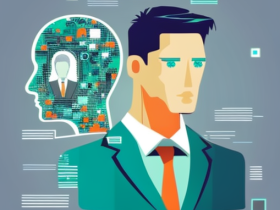Introduction
In the dynamic world of human resources, the increasing complexity of managing talent demands innovative solutions. Deep learning, a subset of artificial intelligence (AI), is gaining prominence as a powerful tool in HR. By enabling machines to learn from data and make intelligent decisions, deep learning is revolutionizing various aspects of HR, from recruitment and talent management to decision-making and employee experience. In this article, we will explore the remarkable ways in which deep learning is transforming the HR landscape, ultimately unlocking the full potential of AI in human resources.
Understanding Deep Learning
Deep learning is a branch of machine learning that focuses on training artificial neural networks, inspired by the structure and function of the human brain. These neural networks consist of multiple layers of interconnected nodes, also known as artificial neurons, that work together to process data and make predictions or decisions.
The Power of Deep Learning in HR
1. Enhancing Recruitment and Talent Management
Recruitment and talent management are critical functions in HR. Deep learning algorithms can analyze vast amounts of data from various sources, including resumes, job descriptions, and social media profiles, to identify the best-fit candidates for specific roles. By leveraging deep learning, HR professionals can save time and resources, as AI models can quickly screen and shortlist candidates based on specific criteria.
Additionally, deep learning can help mitigate biases in the hiring process. By training AI models on diverse datasets, HR teams can reduce the impact of unconscious biases and ensure a fair selection process. This promotes diversity and inclusion within organizations, leading to a more productive and innovative workforce.
2. Unbiased Decision-Making
Deep learning algorithms have the potential to overcome human biases and improve decision-making in HR. Whether it involves performance evaluations, promotions, or employee assessments, deep learning models can analyze vast amounts of data and identify patterns or trends that humans may overlook. This data-driven approach enables HR professionals to make objective and fair decisions based on concrete evidence rather than subjective opinions.
3. Personalized Learning and Development
Employee learning and development play a vital role in enhancing workforce productivity and engagement. Deep learning models can personalize learning experiences by analyzing individual employee data, such as performance records, learning preferences, and career goals. These models can then recommend tailored training programs, courses, or resources to address specific skill gaps and foster continuous learning.
4. Improving Employee Experience
The employee experience has a significant impact on employee engagement, satisfaction, and retention. Deep learning can analyze employee sentiment through sources like surveys, chat logs, and social media posts, helping HR professionals gain valuable insights into employee needs and concerns. With this knowledge, organizations can proactively address issues, create customized employee experiences, and implement strategies to improve overall employee well-being.
5. Forecasting Workforce Trends
Anticipating future workforce trends is crucial for strategic HR planning. Deep learning algorithms can analyze historical data on employee turnover, performance, and other relevant metrics to identify patterns and develop predictive models. These models can help HR teams forecast potential talent shortages, identify areas for skill development, and make data-driven decisions to address emerging challenges.
Conclusion
Deep learning is revolutionizing human resources by leveraging the power of AI to enhance recruitment and talent management, improve decision-making, personalize learning experiences, and create tailored employee experiences. By adopting deep learning technologies, HR professionals can unlock the full potential of AI to drive organizational success and nurture a thriving workforce.








Leave a Reply